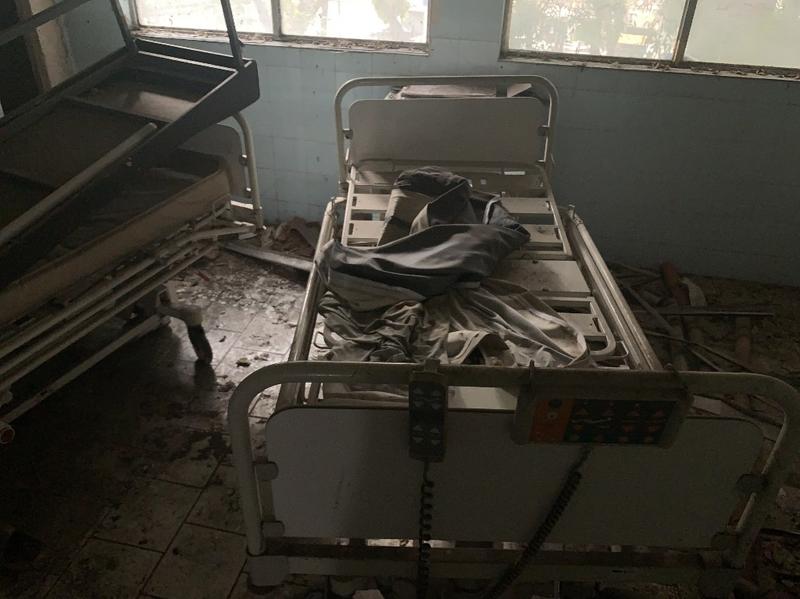 This May 24, 2019 photo, shows damaged medical equipment in a deteriorated area of the Jose Manuel de los Rios Hospital, the main public pediatric hospital in Venezuela, in Caracas. (MARVIN RECINOS / AFP)
This May 24, 2019 photo, shows damaged medical equipment in a deteriorated area of the Jose Manuel de los Rios Hospital, the main public pediatric hospital in Venezuela, in Caracas. (MARVIN RECINOS / AFP)
"I cry every day," said Belkis Suarez, a 54-year-old woman in Venezuela who has breast cancer and relies on the country's public healthcare system. But here, "there are no medicines or equipment to get any kind of treatment."
Venezuela has not reported any cases of the novel coronavirus, but there are fears that the shortage of medical supplies could make it difficult for the country to contain any outbreak
She has not had a single radiotherapy session after undergoing surgery, despite her need for the treatment. "They called me from the hospital two months after the surgery and they have just told me that they are waiting for a technician to fix the radiotherapy machine, but he never shows up."
The public healthcare system appears to have collapsed, said Antonio Orlando, a leader at Avedem, Venezuela's association of medical technology importers and distributors.
ALSO READ: Russia: US sanctions on Rosneft won't hurt our ties with Venezuela
Avedem once had 157 members but now has only seven. "There are no working accelerators (of radiotherapy), the cobalt pumps are not working either," Orlando said. "To treat cancer in the public sector, those patients who can afford it are bringing their own medicines from Colombia."
Venezuela once had 36 magnetic resonance imaging, or MRI, machines, but only four are currently working. The other 32 have been sidelined by a lack of spare parts or electricity blackouts.
The country is facing wide-ranging sanctions imposed by the United States, while an economic crisis has decimated its foreign currency reserves and its credit, which in turn means the country cannot buy supplies abroad.
For Suarez and other patients, the country's lack of medical devices and shortage of medicines are matters of life and death.
Venezuela has not reported any cases of the novel coronavirus, but there are fears that the shortage of medical supplies could make it difficult for the country to contain any outbreak. President Nicolas Maduro said at the end of February that the country has kits to diagnose the novel coronavirus that were donated by the Pan American Health Organization.
The organization has provided Venezuela with both drugs and supplies in the past. A 22-ton shipment was sent to the country in February last year, but this is nowhere near enough for a country of 32 million.
Creative ways
Companies from many countries except China have left Venezuela. And healthcare workers have had to find creative ways to deal with the shortage of products.
"If there are 1,500 incubators out of order, they (healthcare workers) take 750 incubators, cannibalize them and repair 700 with the spare parts of those 750," Orlando said.
"There are some technicians from Meheco who have come, but the only solution they offer is to bring machines that are in other hospitals that have the same issues," said Vietnam Vera, vice-president of the board of physicians at the pediatrics hospital JM de los Rios.
And it is not just these economic barriers to get medical devices and spare parts into Venezuela that have led to the collapse of the sector.
Economic sanctions imposed against Venezuela by the US Treasury Department's Office of Foreign Assets Control have also made it difficult for importers to operate legally.
"It is very complex to bring in spare parts," Orlando said.
READ MORE: US imposes fresh sanctions targeting Venezuela
We need to fill out a series of forms declaring that the parts will be used by the private sector only, and we need to send a bunch of documentation and evidence in order for the providers abroad to comply with US regulations and the sanctions against the regime."
People said ending the US sanctions would be the humanitarian solution to the life and death problems.


